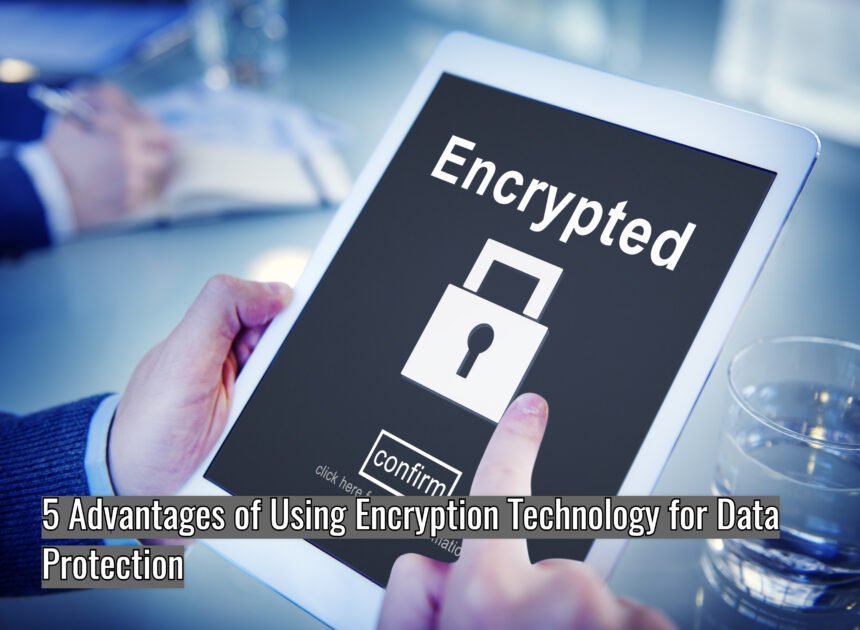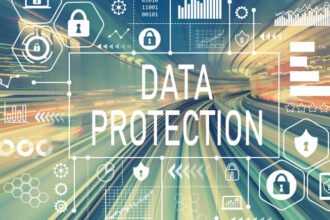Data breaches are becoming more common in today’s society. Hackers know they can sell compromised information on the dark web or use it for purposes such as blackmail.
- 1. You Can Use It Across a Variety of Devices
- 2. It Could Help You Avoid Regulatory Fines
- 3. It Helps You Stay Safer When Working Remotely
- 4. It Supports Data Integrity
- 5. Data Encryption Is a Privacy Safeguard
- 6. Data Encryption Could Provide a Competitive Advantage
- 7. Using Encryption Technology for Data Protection Could Increase Trust
However, encryption technology for data protection is widely available. It involves protecting information with cryptography via a scrambled code. Only people with the key to decode the data can read it. Here are seven reasons to depend on encryption technology:
Encryption technology is an important part of data protection. It provides enhanced security, meets compliance requirements, and can help businesses improve their overall system performance. With the right encryption technology and active directory management tools, businesses can ensure that their data is secure and protected.
Encryption technology offers a number of advantages over other data protection methods. Here are seven advantages of using encryption technology for data protection:
1. You Can Use It Across a Variety of Devices
One of the top advantages of modern encryption technology is that you can apply it to all or most of the tech devices you use. Data on an iPhone gets encrypted by default as long as you lock it with a password or the Touch ID feature. On an Android phone, it’s easy to walk through an encryption process within the Security menu of the Settings section. Some Android devices also have encryption enabled when you purchase them.
There are free and paid options for encrypting your computer, too. Depending on your needs, companies offer full hard disk or file-based encryption. Also, don’t overlook the choices available for encrypting the content on an SD card or thumb drive. Since some many possibilities exist for people who want to encrypt their data, it’s worth at least researching to see which methods are most appropriate for you. Internet traffic should also be encrypted. Most secure VPN providers always use the with 256-bit encryption protocol.
Multi-device encryption is also becoming more important as SMS marketing becomes more prevalent. A study by Grandview Research estimates that the market for SMS marketing is growing by 20.5% a year from 2019 to 2025. A growing number of companies are using text messages to reach their customers.
2. It Could Help You Avoid Regulatory Fines
Depending on your given industry or the specific policies set forth by your employer, encryption technology for data protection may become mandatory rather than optional. For example, in the health care sector, patient privacy laws require keeping information encrypted. Organizations receive significant fines for noncompliance.
In one case occurring in June 2018, the University of Texas’s MD Anderson Cancer Center received a $4.3 million penalty for violating the Health Insurance Portability and Accountability Act, more commonly known as HIPAA. The trouble began in 2012 when a thief stole a laptop containing 30,000 patient records from an employee’s home. That same year, as well as in 2013, there were two separate instances of more data loss via misplaced USB drives.
The devices containing the data were not encrypted. The judge that ruled in the case brought up that glaring oversight when he issued the fine. In health care, as well as other industries that often handle sensitive information, regulatory fines are genuine concerns. Besides how these incidents cut into an organization’s profits, bad publicity could give people second thoughts about doing business with companies that don’t responsibly store data.
3. It Helps You Stay Safer When Working Remotely
Companies are now more frequently requiring workers to solely use encrypted devices due to incidents like these. That’s not surprising, considering how other technological advances make it easier for employees to stay productive from anywhere.
However, according to a 2018 North American report published by Shred-It, the majority of business leaders believe data breach risks are higher when people work remotely. More specifically, 86% of C-Suite executives and 60% of small-business owners hold that view. Whether you work remotely all the time or just occasionally, data encryption helps you stop information from falling into the wrong hands.
4. It Supports Data Integrity
Something else to keep in mind about encryption technology for data protection is that it helps increase the integrity of the information alone. Indeed, encryption alone does not guarantee this, but it’s something you can and should use as part of an overall strategy. If you trust the data, it’s easier to use confidently to make business decisions.
Statistics show that poor data quality is a primary reason why 40% of all business initiatives fail to achieve their targeted benefits. High-quality information can help you learn more about your customers, track trends and otherwise find out things you might otherwise miss. Companies often deploy techniques like data cleansing to improve quality, and that’s a good start.
Data encryption could help ensure that only authorized parties access a firm’s information for analysis. It also decreases the likelihood of a hacker successfully tampering with data, and those actions going unnoticed.
5. Data Encryption Is a Privacy Safeguard
Consider the information you have stored on your smartphone or computer, and you can probably understand why encryption keeps your identity secure along with your data. On a smartphone, for example, encryption apps can make it virtually impossible, or at least exceptionally challenging, for any unauthorized person to access your information. In several instances, law enforcement officials have had difficulty investigating phone data on encrypted devices.
For everyday users that won’t typically worry about their phones becoming evidence, data encryption can stop sensitive details from unknowingly going live on the internet. Once hackers compromise information such as email addresses, the rightful owners may not know what’s happened until months pass.
To get an idea of how massive data breaches can become, think about the recent case where more than 770 million email addresses and passwords were exposed to a hacking forum. The cybersecurity researcher who discovered it pointed out that the information likely came from many individual data breaches rather than one gigantic compromise.
Even so, the sheer number of the exposed email/password combinations is enough to highlight how effective hackers can be at obtaining information. It’s also frightening that hackers are getting more creative regarding the ways they use seized data. Some of them impersonate doctors after taking the information associated with medical licenses. Others nab frequent flier miles and use them to make unauthorized flight ticket purchases.
6. Data Encryption Could Provide a Competitive Advantage
Since data encryption applies both to information at rest and in transit, it provides consistent protection that could lead to peace of mind for the people who handle information.
Research shows that a growing percentage of businesses know that creating an encryption plan is essential. A 2019 study presented by Ponemon Institute found that, during the fiscal year 2018, 45% of the companies polled reported having an overall encryption strategy applied consistently across their organizations. Slightly less (42%) mentioned having a limited encryption strategy used for certain applications or types of data.
Only 13% said they did not have a strategy at all. That research suggests that if your enterprise fails to prioritize encryption, it could lag compared to competitors. The good news is that the encryption software market is growing.
A market forecast from Grand View Research assessed the encryption software market and gave a projection for the period from 2019-2025. The firm expects a combined annual growth rate (CAGR) of 16.8% for the specified timeframe, with on-premise options being in the majority as cloud-based options steadily grow.
7. Using Encryption Technology for Data Protection Could Increase Trust
Even when not required to encrypt data due to privacy regulations, some companies choose to do so to show their clients they take privacy seriously. Making that assertion is particularly important due to the eroding trust many people have in the internet.
According to the 2019 CIGI-Ipsos Global Survey on Internet Security and Trust, 53% of respondents said they were more concerned about online privacy now than a year ago. The same survey indicated that nearly half of those polled (49%) said that their distrust of the internet made them disclose less personal information online. Surprisingly, only 19% of people surveyed said they used more encryption to increase safety.
Those findings open an opportunity for companies to bolster consumer trust by explicitly stating how they encrypt customer data. Although end-users need to take responsibility as well, enterprises can solidify their reputations by emphasizing a commitment to incorporating the latest encryption technologies into their operations.
Time to Take Action
Encryption helps organizations achieve zero trust security architecture. Zero trust prevents unauthorized users from accessing sensitive files, even if they have valid credentials or a legitimate account on the organization’s network. By encrypting data, companies can limit access only to those with authorized permissions and ensure that all communication remains secure even if it falls into the wrong hands.
If you’ve been considering using encryption to keep data safe, there are plenty of reasons to do so. Ponder the statistics and points of focus here as you plan how to proceed.











